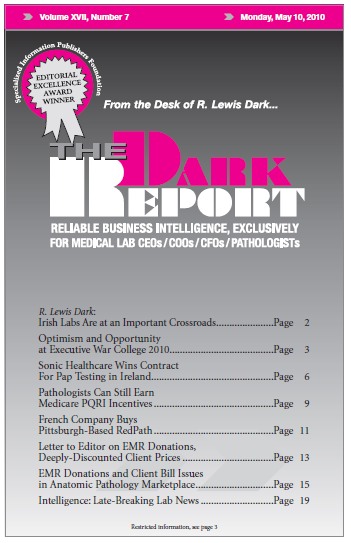CEO SUMMARY: In today’s market for anatomic pathology services, local pathology practices are facing tough competition from national pathology companies that are quite aggressive at using EHR donations and discounted client bill arrangements to win new clients. Attorney Jane Pine Wood of McDonald Hopkins identifies federal safe harbor requirements governing EHR donations involving laboratories and …
EMR Donations, Client Bill Issues in Anatomic Path Read More »
To access this post, you must purchase The Dark Report.


